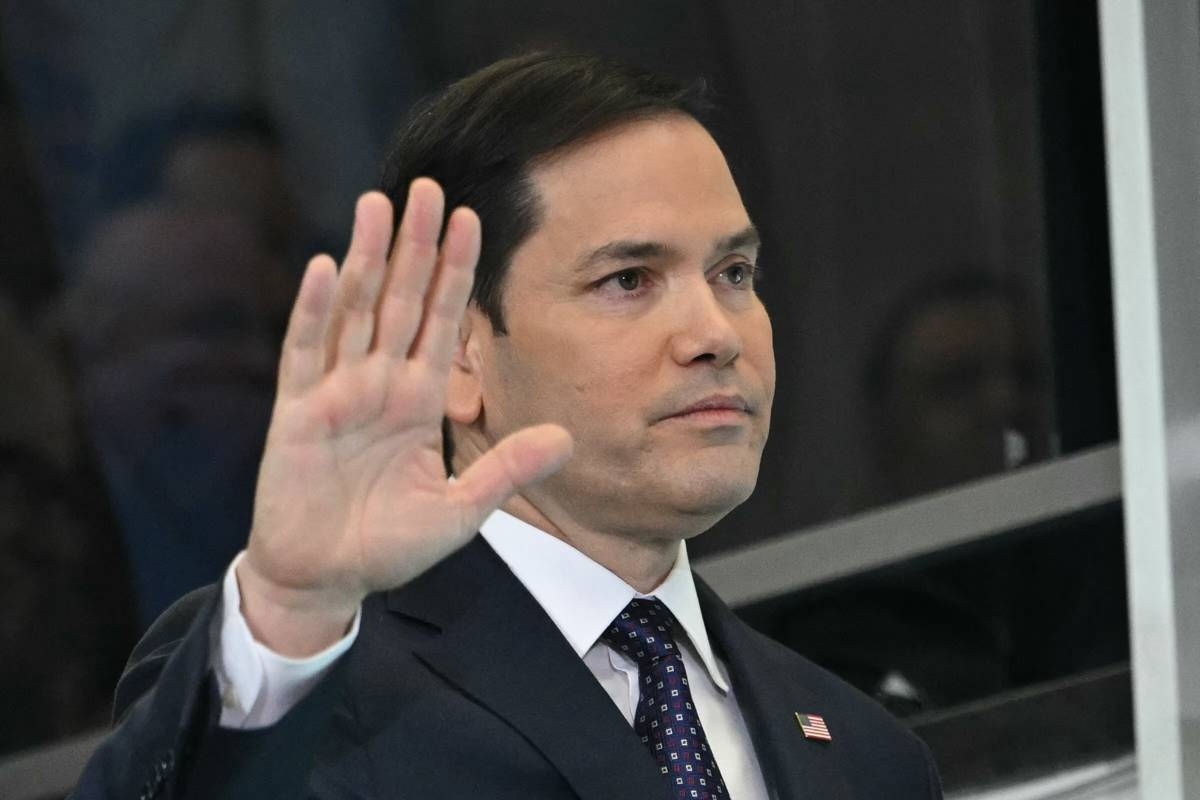'China's behavior undermines regional peace'
(UPDATE) UNITED States Secretary of State Marco Rubio said China's behavior in the South China Sea undermined regional peace and stability and is inconsistent with international law. Rubio made the statement when he spoke with Foreign Affairs Secretary Enrique Manalo in Washington Tuesday (Wednesday in Manila). State Department spokesman Tammy Bruce said Rubio and Manalo spoke about "issues of mutual concern, including the China's dangerous and destabilizing actions in the South China Sea." Rubio "underscored the United States' ironclad commitments to the Philippines under our Mutual Defense Treaty," Bruce said in a statement. The two officials "also exchanged views on ways to advance security cooperation, expand economic ties for shared prosperity, and deepen avenues for further regional cooperation," he said. On Wednesday night, Manalo wrote on X: "Happy to speak tonight to the 72nd US Secretary of State Marco Rubio and congratulate him on his appointment." "We discussed the importance of the Philippine-US alliance for prosperity and security of the Indo-Pacific, and the strength of our bilateral, political, economic, and people to people ties," he said. During a roundtable with the media last December, US Ambassador to Manila MaryKay Carlson said 2025 "promises to be another banner year." "We'll be marking the 80th anniversary of the end of World War II when American and Filipino soldiers successfully turned the tide in the Pacific," she said. She added that the US-Philippine relationship, "anchored on our security alliance, our economic ties, and our cultural and historical connections, has fostered peace and stability in the Indo-Pacific region for decades." Carlson also said the last 12 months of US-Philippine relations "have given us much to celebrate." She said the "2024 was a banner year for our relationship as friends, partners, and allies." She said a "pinnacle point of 2024" was the Trilateral Leaders' Summit in April among then-US president Joe Biden, President Ferdinand Marcos Jr,, and then-Japanese prime minister Fumio Kishida at the White House. During that meeting, the three leaders committed to increasing cooperation in cyber and emerging technologies, semiconductor workforce development, and clean energy technologies. "They also reaffirmed our shared commitment to international law and a free and open Indo-Pacific region, setting the direction for our growing trilateral security cooperation," Carlson said.

(UPDATE) UNITED States Secretary of State Marco Rubio said China's behavior in the South China Sea undermined regional peace and stability and is inconsistent with international law.
Rubio made the statement when he spoke with Foreign Affairs Secretary Enrique Manalo in Washington Tuesday (Wednesday in Manila).
State Department spokesman Tammy Bruce said Rubio and Manalo spoke about "issues of mutual concern, including the China's dangerous and destabilizing actions in the South China Sea."
Rubio "underscored the United States' ironclad commitments to the Philippines under our Mutual Defense Treaty," Bruce said in a statement.
The two officials "also exchanged views on ways to advance security cooperation, expand economic ties for shared prosperity, and deepen avenues for further regional cooperation," he said.
On Wednesday night, Manalo wrote on X: "Happy to speak tonight to the 72nd US Secretary of State Marco Rubio and congratulate him on his appointment."
"We discussed the importance of the Philippine-US alliance for prosperity and security of the Indo-Pacific, and the strength of our bilateral, political, economic, and people to people ties," he said.
During a roundtable with the media last December, US Ambassador to Manila MaryKay Carlson said 2025 "promises to be another banner year."
"We'll be marking the 80th anniversary of the end of World War II when American and Filipino soldiers successfully turned the tide in the Pacific," she said.
She added that the US-Philippine relationship, "anchored on our security alliance, our economic ties, and our cultural and historical connections, has fostered peace and stability in the Indo-Pacific region for decades."
Carlson also said the last 12 months of US-Philippine relations "have given us much to celebrate." She said the "2024 was a banner year for our relationship as friends, partners, and allies."
She said a "pinnacle point of 2024" was the Trilateral Leaders' Summit in April among then-US president Joe Biden, President Ferdinand Marcos Jr,, and then-Japanese prime minister Fumio Kishida at the White House.
During that meeting, the three leaders committed to increasing cooperation in cyber and emerging technologies, semiconductor workforce development, and clean energy technologies.
"They also reaffirmed our shared commitment to international law and a free and open Indo-Pacific region, setting the direction for our growing trilateral security cooperation," Carlson said.


















